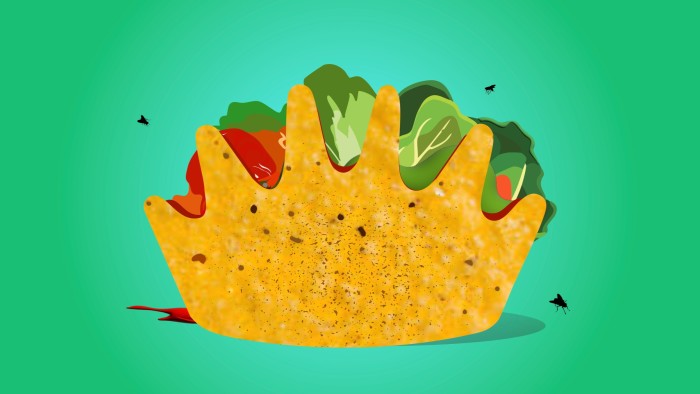Share this @internewscast.com
Sign up for the White House Watch newsletter at no cost.
The question on some Brazilians’ minds now might be, “How do you say ‘Taco’ — or ‘Trump Always Chickens Out’ — in Portuguese?” The query, delivered with a grin, reflects recent developments in international trade relations.
Just four months ago, U.S. President Donald Trump announced an increase in tariffs on Brazilian imports, raising them to a hefty 50%. This move came in response to Brazil’s legal scrutiny of its former president, Jair Bolsonaro, and its actions against major U.S. tech companies.
In a show of defiance, Brazilian President Luiz Inácio Lula da Silva stood firm against what many perceived as bullying tactics, which in turn bolstered his popularity at home. Meanwhile, a Brazilian judge has since sentenced Bolsonaro to jail.
As for those tariffs? Last week, Trump announced that “certain agricultural imports from Brazil” would no longer face the additional 40% surcharge. In layman’s terms: Lula emerged victorious.
There are several takeaways from this situation. Firstly, it appears the White House is increasingly concerned about rising cost-of-living issues. Recent polls indicate a decline in consumer confidence, paralleling a drop in Trump’s approval ratings. In response, his administration is actively seeking ways to lower grocery costs, with reducing agricultural tariffs being an obvious strategy.
The second lesson is that bullies often respond to strength. Yes, craven flattery can sometimes work, too; Switzerland reduced its own tariffs by sending gift-laden, grovelling executives to meet Trump. But China has pursued a path of belligerence with notable results. And Brazil’s defiance suggests that others are learning from Beijing. If nothing else, this suggests that anyone dealing with Trump should start by assessing how to exploit his weak spots.
Third: it pays to distinguish between tactics and goals when looking at the White House. That might not sound obvious, given Trump often seems to be woefully short of clear strategy. Indeed, his stance on Brazil, Ukraine and the Jeffrey Epstein case — to name but a few issues — has been so capricious that unpredictability is arguably the only predictable trait.
And — unsurprisingly — many critics interpret this policy capriciousness as either a sign of gross incompetence or personality disorders, or both; like a Tudor king, Trump’s narcissistic whims appear to drive his “court”.
But I think a more helpful frame is to borrow advice given to new recruits at some US investment banks, namely to try to identify in any action a hierarchy of “goals”, “strategies” and “tactics”.
For, while Trump does not operate with clearly articulated policy goals of the sort that a banker might recognise, he is certainly driven by strong instincts. Most notably, his “Make America Great Again” tag reflects a consistent desire to achieve extreme economic and political dominance, for both the country and his inner circle. (As befits a quasi-king, these two often seem intertwined.)
Moreover, this instinct is being turned into strategies by advisers. These can be contradictory, partly because of fights between White House factions. However their leitmotif is “geoeconomic” policymaking, ie a desire to use economic policies to bolster hegemonic power, in a way that repudiates both late 20th-century neoliberal thinking and the collaborative postwar Bretton Woods approach.
And this strategy not only uses networks to fight for dominance, as the political scientists Grégoire Mallard and Jin Sun have observed, but also jumbles up economics, politics, culture, tech, military and individual grievances. Hence Trump’s attempt to use tariffs to force Brazil to release Bolsonaro, or his ally’s threat to impose tariffs on Norway after its sovereign wealth fund divested from Caterpillar.
Beneath this, there are also tactics. These echo the modus operandi Trump used to cut deals in business: bullying, threats, melodrama, policy swings, favouritism and “flood the zone” announcements, to cite the president’s former strategist Steve Bannon.
Those aggressive tactics grab attention; indeed, they are planned to do so. But eye-catching or not, they should not be confused with goals or strategies. The aim is to gain leverage against rivals in a transactional world.
These tools do not always work. Hence that “Taco” quip, which arose because Trump has often watered down tariff threats. But it is precisely because these melodramatic moves are often tactics — not deeply held ideological goals — that the White House feels able to pivot without a blush, discarding moves if they backfire or bigger priorities emerge. That’s why Brazilian tariffs suddenly vanished last week, and why Trump has just embraced Zohran Mamdani, the newly elected New York mayor, after viciously attacking him.
Of course, some observers might dismiss this analysis as mere “sane washing”, an effort to make the White House team seem more logical than they really are. Fair enough; I would not deny the capricious nature of Trump.
But the key point is this: even if you scoff at Trump, it pays to separate the signal from the noise. In that sense, Lula’s triumph has sent some distinctly encouraging signals for the Europeans and others. Kings are rarely as all-powerful as they seem.
gillian.tett@ft.com








